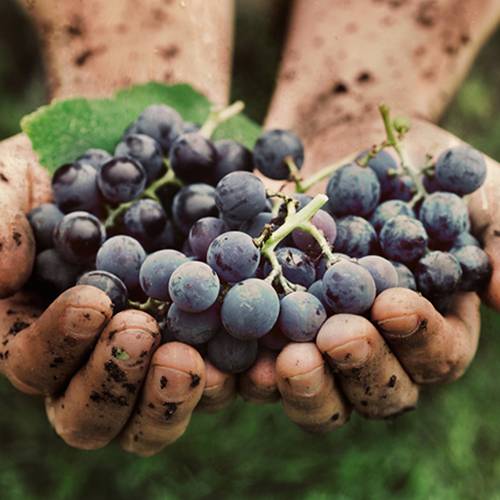- No. 268 Xianghe Street, Economic Development Zone of Xingtai city, Hebei 054001 China
- Byron@hbhongri.cn
Exploring the Benefits of Fermented Dried Peppers in Culinary and Health Applications
Fermented Dried Peppers A Culinary Tradition and Health Enhancer
In the world of gastronomy, few ingredients possess the unique versatility and rich flavor profile of peppers. Among various methods of preserving and enhancing their taste, fermentation stands out as both an ancient practice and a modern trend. Fermented dried peppers have gained popularity not only for their robust flavors but also for the health benefits they offer. This article explores the captivating process of fermenting and drying peppers, their culinary applications, and the nutritional value they can add to our diets.
The Art of Fermentation
Fermentation is a natural process that involves the breakdown of sugars by bacteria and yeasts. This process not only preserves foods but also enhances their flavors and health benefits. Peppers, when fermented, undergo a transformation that amplifies their natural sweetness and creates complex, tangy flavors. The most commonly fermented peppers include jalapeños, bell peppers, and Carolina Reapers, each contributing different taste profiles and heat levels.
The fermentation process typically starts with fresh peppers, which are often brined in saltwater to encourage the growth of beneficial bacteria, particularly Lactobacillus. This bacteria converts sugars in the peppers into lactic acid, resulting in a sour flavor that balances the natural spice. After a period of fermentation, which can last from a few days to several weeks depending on the desired taste, the peppers can be dried to create fermented dried peppers. This combination of fermentation and drying not only preserves the peppers but also concentrates their flavors.
Drying Techniques
Once the fermentation process is complete, the next step is to dry the peppers. There are several methods for drying peppers, including air drying, sun drying, and using a dehydrator or an oven. Each method has its advantages, but the key goal is to reduce the moisture content significantly, which enhances the pepper's flavor and extends its shelf life.
Air-dried peppers, for example, develop rich, smoky flavors that are highly sought after in culinary applications. Sun drying, while a traditional method, adds an element of environmental sustainability and can impart unique flavors influenced by local flora and climate. Meanwhile, using an electric dehydrator allows for precise temperature control, ensuring that the peppers maintain their vibrant colors and essential nutrients.
fermented dried peppers

Culinary Applications
Fermented dried peppers are incredibly versatile in cooking. They can be ground into powders to create spice blends, added to sauces for a tangy kick, or rehydrated in various dishes. They are widely used in cuisines around the world—from the spicy pastes of Mexico to the savory dishes of Southeast Asia.
For instance, in Mexican cuisine, fermented dried peppers are an essential ingredient in mole sauces, where they enrich the dish with depth and complexity. In Asian cooking, they can be rehydrated and mixed into stir-fries, providing a burst of flavor and heat. Additionally, they can be used as toppings on pizzas, incorporated into marinades, or even blended into cream sauces for pasta dishes, showcasing their adaptability across different culinary traditions.
Health Benefits
Beyond their enticing flavors, fermented dried peppers offer a range of health benefits. They are rich in vitamins, especially vitamin C and vitamin A, which are vital for maintaining immune function and eye health, respectively. The fermentation process increases the bioavailability of these nutrients, making them easier for the body to absorb.
Moreover, the probiotics generated during fermentation can promote gut health, aiding digestion and enhancing the microbiome. Capsaicin, the compound responsible for the spice in peppers, has been linked to various health benefits, including anti-inflammatory properties, improved metabolism, and even pain relief.
Conclusion
Fermented dried peppers represent a fusion of tradition and innovation in the culinary world. Their complex flavors and potential health benefits make them a fantastic addition to a wide array of dishes. As more people embrace fermentation and seek to incorporate nutrient-dense ingredients into their diets, fermented dried peppers are poised to become a staple in kitchens worldwide. Whether you're a seasoned chef or a home cook, exploring the world of fermented dried peppers can lead to delicious discoveries that tantalize the taste buds and promote good health.
-
Turmeric Rhizome Powder: A Golden Treasure from Roots to TableNewsJul.28,2025
-
The Versatile Application Of Crushed Red Hot Peppers: Lighting Up The Red Flames On The Dining TableNewsJul.28,2025
-
The Paprika: A Touch Of Vibrant Red In Color, Flavor, And CultureNewsJul.28,2025
-
Ground Turmeric: A Modern Examination of an Ancient SpiceNewsJul.28,2025
-
Capsicum Liquid Extract: Features, Applications, and ChallengesNewsJul.28,2025
-
Application of Capsicum Liquid Extract in FoodNewsJul.28,2025







